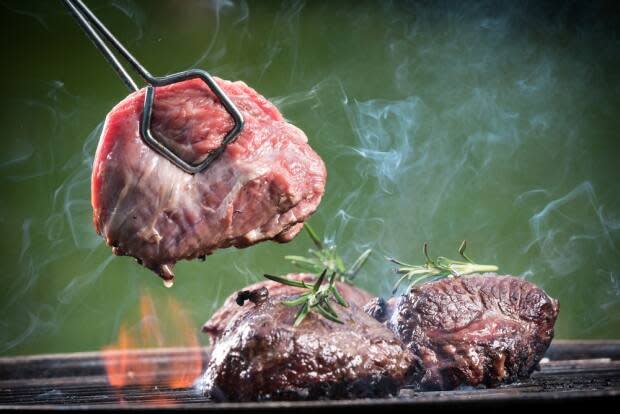New beef recipes won't appear on foodie website, but not everyone agrees with the reason

An Islander who leads a national food awareness group isn't sure reducing beef consumption will do much to change greenhouse gas emissions.
The popular cooking site Epicurious says it doesn't have a beef with beef, but it announced last week it is no longer posting new recipes using the red meat.
In a post titled "The Planet on the Plate: Why Epicurious Left Beef Behind," Epicurious editors cited statistics from the World Resources Institute that beef requires 20 times more land and makes 20 times more greenhouse gases than common plant proteins, such as beans.
In the post, the authors also noted the site stopped publishing new recipes using beef over a year ago.
John Jamieson, president and CEO of the Canadian Centre for Food Integrity, believes focusing on reducing food waste would be better. He said in Canada, about 58 per cent of the food produced "doesn't end up in the bellies of people." Globally, food waste accounts for about eight to 10 per cent of all greenhouse gas emissions.
"If you're a consumer and you're being conscious about how you can reduce your carbon footprint, you really need to think about, what do we do individually and collectively to reduce that food waste? And I think that's a much more effective way to have an impact on climate change."
Researcher Jim Dyer, who contributed to a paper for Agriculture Canada on livestock and greenhouse gas emissions, said beef is a bigger contributor to climate change than other meat, and eating less beef would be one way to help the planet.
"For equal amounts of that protein, beef and any ruminant, it's about four to five times as high as pork or broilers. And a lot of that is methane. But a lot of it is the fact that the beef cow is a pretty inefficient animal in terms of producing protein."
Dyer said roughly half of a herd at any one time is a breeding herd. With pork, however, one breeding sow can typically produce 20 odd piglets a year. The reproductive rate for poultry is even higher, he said.
"So, I mean, that's a more efficient way to get your protein."
Dyer did note that people should consider how the cattle are raised, because pasture land can be a carbon sink, which can offset some of the other emissions.
Epicurious staff said they believe if people subbed in one vegetarian meal a month instead of a beef meal, it would make a difference.
More from CBC P.E.I.

